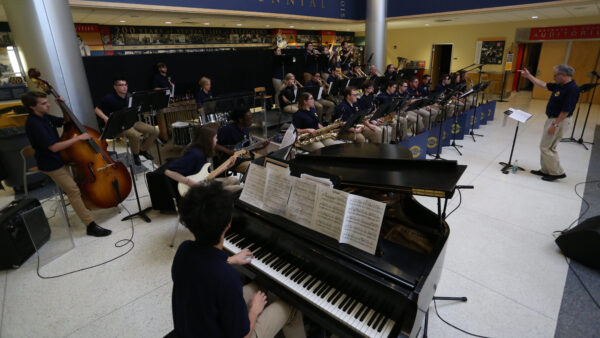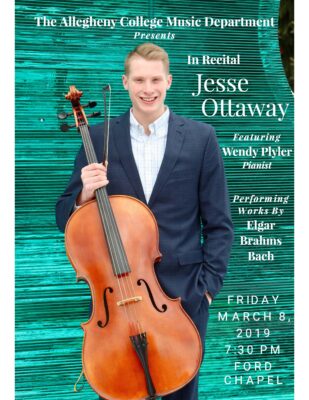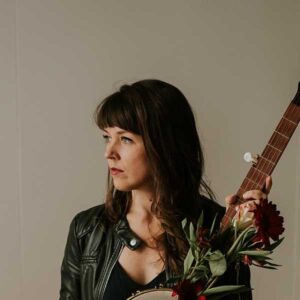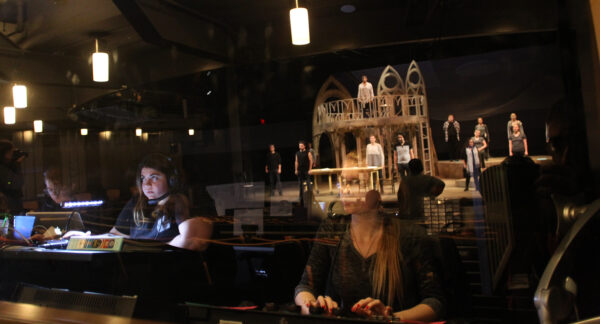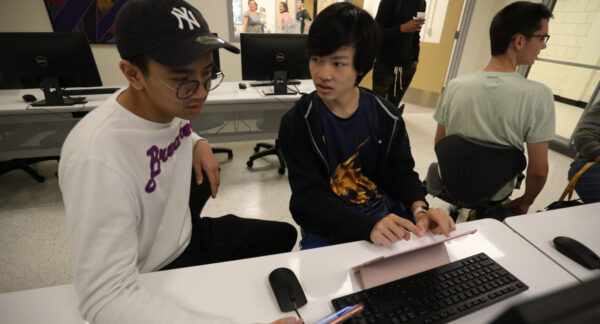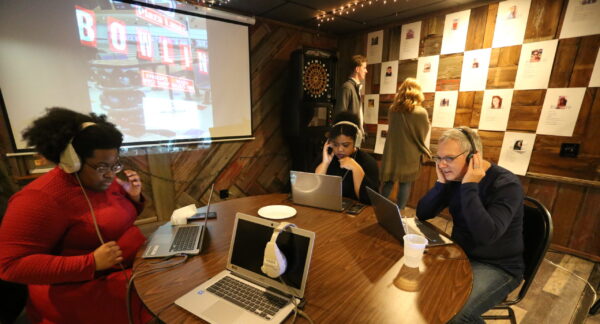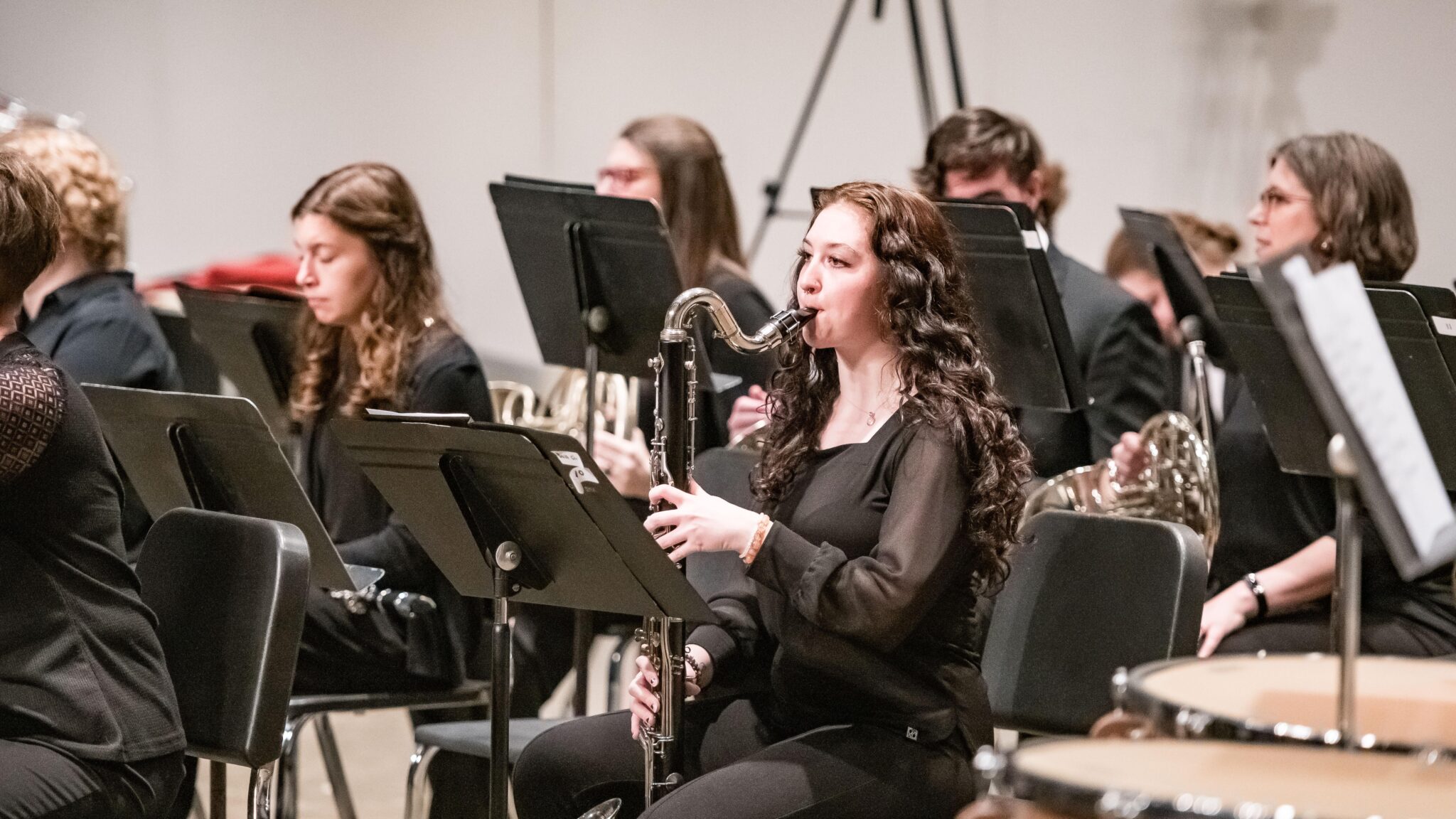
Music
Why Minor in Music at Allegheny College
Music at Allegheny celebrates the creative art form in which sounds are selected and combined as a means of communication and expression. The study of music enables consumers (listeners), re-creators (performers), and creators (composers) to increase their understanding of both the sounded and written aspects of musical language. Music courses accommodate a wide variety of backgrounds so that students can either begin or continue their musical development in three different areas: music theory, music history, and performance.
Unusual Combinations
Students often combine Music with:
Division
- Visual and Performing Arts
Program Type
- Minor
Number of Credits
24 for minorCareers in Music
A degree in music prepares you for jobs in industries such as:
- Education
- Production and engineering
- Artistic direction
- Performance
Where Music Alumni Work Today
Director of Music Ensembles
Linsly School at Case Western Reserve University
Damon Harvey ’07
Marketing Manager
Erie Philharmonic
Brigit Stack ’17
Digital Media Coordinator
The Penn State School of Music
Christopher Wahlmark ’09
Musician
U.S. Navy
Daniel Honeycutt ’14
Archaeological Field Research Manager
Thomas Jefferson’s Monticello
Crystal Ptacek O’Connor ’09
Classical Program Host
WGBH Radio, Boston
Christopher Voss ’11
Hydrogeologist
KU Resources, Inc.
Daniel Kerschner ’17
Speech Language Pathologist
Pittsburgh Voice Center
Christina Dastolfo ’08
Creative Arts Program Supervisor/Music Therapist
Wesley Family Services
Katie Harrell ’96
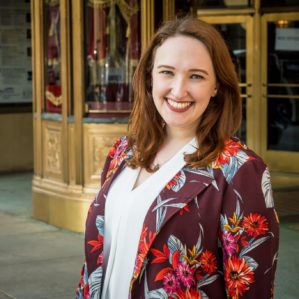
View Megan’s StoryMy time at Allegheny College made me realize my passion: making music accessible to performers and audience members.

View Nicholas’s StoryI am pushed to be the best performer that I can be, and I am extremely grateful for that.

View Katharine’s StoryThe music faculty have been instrumental in helping me to grow both as a performer and as an individual.
Your Four-Year Journey
Year One: Understanding
Students are encouraged to explore performance opportunities with one or more ensembles and applied lessons. Students may choose to begin coursework in music theory and/or music history.
Featured Courses:
- MUSIC 121 – Discovering Music
- MUSIC 123 – Listen Up!
- MUSIC 175 – Music Technology
Year Two: New Approaches
Students continue membership in ensembles and should begin their coursework in music theory and history if they have not already done so. Students who intend to minor in Music should discuss which of the three minor options works best for them with their applied teacher and/or the Music Department chair.
Featured courses:
- MUSIC 214 – Improvisation Workshop
- MUSIC 221 – Western Art Music: Antiquity to Classical Period
- MUSIC 260 – Strings: Beginning to Intermediate
Year Three: Delving Deeper
Music minors should begin juried-level applied lessons by year three if they have not done so already. Students may also consider an elective recital, either given as a solo performance or in collaboration with another student recitalist.
Featured Courses
- MUSIC 311 – Advanced Musical Analysis
- MUSIC 321 – Advanced Music & Culture
- MUSIC 375 – Other Instruments: Advanced
Year Four: The Comp
Students may choose to incorporate elements of their Music minor into their Senior Comp in their major, or they may consider an elective recital, either given as a solo performance or in collaboration with another student recitalist.
Featured Courses
- MUSIC 360 – Strings: Advanced
- MUSIC 455 – Voice: Juried Performance
- MUSIC 482 – Recital I
Faculty and Staff
Professor
D.M.A., University of Connecticut; M.M., Binghamton University; B.A., Allegheny College
Email: jniblock@allegheny.edu
Phone: 814-332-3305
Assistant Professor
Ph.D. Candidate., University of Pittsburgh; M.M., University of Pittsburgh; B.M., Virginia Commonwealth University
Email: hstandiford@allegheny.edu
Phone: 814-332-3307
Featured News
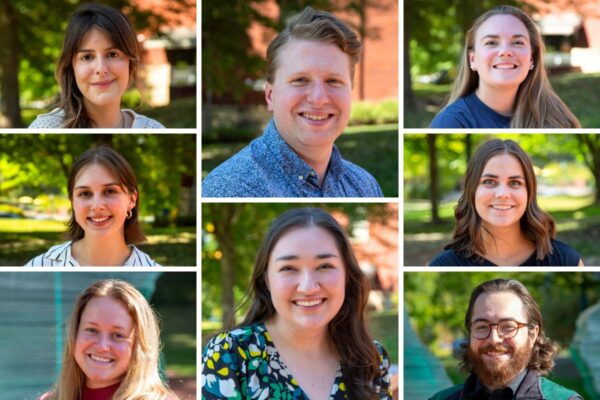
Gator Alumni Apply Lessons Learned at Allegheny to Rewarding Careers in Nonprofit and Government Sectors
Allegheny College’s Blue and Gold Weekend welcomed alumni returning to campus, celebrating not just memories but also the impressive careers they’ve built since graduation.


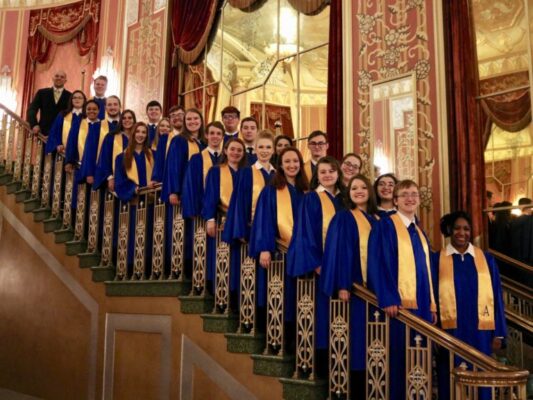 Choirs
Choirs